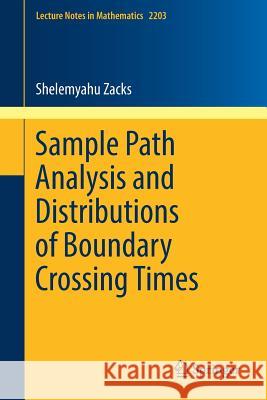Sample Path Analysis and Distributions of Boundary Crossing Times » książka
topmenu
Sample Path Analysis and Distributions of Boundary Crossing Times
ISBN-13: 9783319670584 / Angielski / Miękka / 2017 / 135 str.
This monograph is focused on the derivations of exact distributions of first boundary crossing times of Poisson processes, compound Poisson processes, and more general renewal processes.











